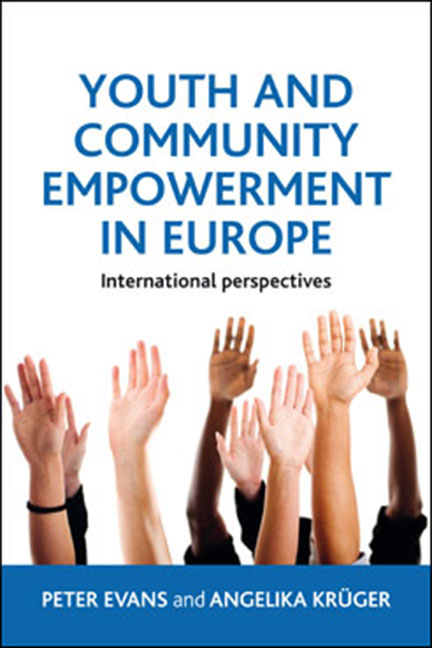Book contents
- Frontmatter
- Dedication
- Contents
- List of figures and tables
- List of abbreviations
- Acknowledgements
- Preface
- Background to the Youth Empowerment Partnership Programme
- one Introduction: the theoretical context of the YEPP approach
- two YEPP I: implementation
- three YEPP I: key changes in YEPP Local Programme Sites
- four YEPP I: meeting the goals
- five YEPP II: learning from YEPP I
- six YEPP II: portraits and overall programme outcomes
- seven YEPP I and II: conclusions and policy implications
- Epilogue: The future of YEPP
- References
- Index
Preface
Published online by Cambridge University Press: 07 September 2022
- Frontmatter
- Dedication
- Contents
- List of figures and tables
- List of abbreviations
- Acknowledgements
- Preface
- Background to the Youth Empowerment Partnership Programme
- one Introduction: the theoretical context of the YEPP approach
- two YEPP I: implementation
- three YEPP I: key changes in YEPP Local Programme Sites
- four YEPP I: meeting the goals
- five YEPP II: learning from YEPP I
- six YEPP II: portraits and overall programme outcomes
- seven YEPP I and II: conclusions and policy implications
- Epilogue: The future of YEPP
- References
- Index
Summary
The alienation experienced by young people living in areas of severe social disadvantage throughout Europe presents challenges that are as complex as they are urgent. Increasing numbers of children and young people across Europe are facing severe risks of social exclusion.
Social exclusion is one of the most pressing challenges for modern societies, both in Europe and globally. As a report issued by the Youth Research Partnership of the Council of Europe and the European Commission states, there is a consensus among researchers that ‘social exclusion includes political and cultural dimensions as well as economic poverty. It combines linked problems which typically accumulate […] and it is a dynamic process which occurs over time’ (Colley et al, 2005, in Bleckmann and Krüger, 2007, p 7). This understanding acknowledges the fact that socially excluded individuals are often facing simultaneously a range of interwoven problems. At the beginning of the 21st century, the risk of social exclusion in many European countries has grown from a problem limited to distinct groups of people to a phenomenon that is affecting growing numbers of citizens from diverse backgrounds, including formerly middle-class families and neighbourhoods. There are of course groups who continue to be particularly vulnerable and for whom social exclusion – in its diverse forms – is a reality of their daily lives; yet, the risks of social exclusion are no longer limited to these minorities.
Children and young people in particular are facing growing risks of social exclusion; the challenges they have to cope with in their biographies have become more fragmented, complex and contradictory. For instance, from the socioeconomic side of exclusion, young people are among the groups that are most vulnerable to income poverty. Data derived from broad quantitative surveys (Aassve et al, 2006) clearly indicate that, although each individual country may differ in its general approach to social welfare and in its economic strength, the problem of child and youth poverty is remarkably consistent right across Europe. Even young people who have been successful in accessing the labour market are often denied decent labour. Insecure and precarious employment constellations are typical phenomena that have a direct impact on the lives of young people.
- Type
- Chapter
- Information
- Youth and Community Empowerment in EuropeInternational Perspectives, pp. x - xviiiPublisher: Bristol University PressPrint publication year: 2012



